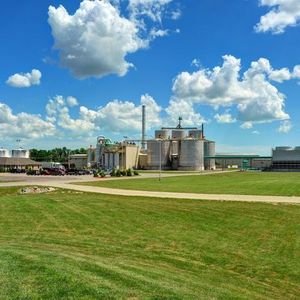IGPC Ethanol reaches 1 billion liters of ethanol production

IGPC Ethanol Inc.
November 11, 2014
BY Canadian Renewable Fuels Association
IGPC Ethanol Inc.’s fuel ethanol facility in Aylmer, Ontario, has now produced over 1 billion liters (264.17 million gallons) of ethanol, a substantial milestone in IGPC’s history. For over six years of operation, IGPC Ethanol has been a significant contributor to Canada’s domestic supply of ethanol, producing in excess of 170 million liters of corn-based ethanol per year.
“The success of this facility is grounded in the hard work of its employees, and the ongoing support of its shareholders,” said Jim Grey, CEO of IGPC Ethanol Inc.
Advertisement
Strategically located in the middle of Ontario’s strongest corn growing region, IGPC has also been a major contributor to the surrounding communities and the regional economy, purchasing corn from local farmers and creating jobs for nearby residents.
IGPC Ethanol is Canada's first farmer owned ethanol production facility, and many of the economic benefits attributed to the operation of this facility are due to this cooperative ownership structure. With over 800 shareholders coming from across Southern Ontario, many of the company’s economic gains are retained within the local economy.
The ethanol produced in this facility is an environmentally friendly alternative to traditional transportations fuel, and a strong contributor to federal GHG reduction targets. In higher concentrations, renewable fuels like ethanol have been shown to significantly reduce air toxins, ultra-fine particulates, and other harmful airborne emissions – damaging to both human health and the health of the planet.
Advertisement
Accompanying this great milestone is an ongoing dedication from IGPC Ethanol to improving plant efficiencies and continually increasing production levels. Recently acquired patent pending processing technology has the potential to significantly enhance IGPC’s ethanol yields, while new enhancements to the plant, including a steam turbine generator, a natural gas electric generator, and plans for waste heat capture, are anticipated reduce overall energy requirements of the plant to the point of near self-sufficiency.
Related Stories
CoBank’s latest quarterly research report, released July 10, highlights current uncertainty around the implementation of three biofuel policies, RFS RVOs, small refinery exemptions (SREs) and the 45Z clean fuels production tax credit.
The U.S. Energy Information Administration maintained its forecast for 2025 and 2026 biodiesel, renewable diesel and sustainable aviation fuel (SAF) production in its latest Short-Term Energy Outlook, released July 8.
XCF Global Inc. on July 10 shared its strategic plan to invest close to $1 billion in developing a network of SAF production facilities, expanding its U.S. footprint, and advancing its international growth strategy.
U.S. fuel ethanol capacity fell slightly in April, while biodiesel and renewable diesel capacity held steady, according to data released by the U.S. EIA on June 30. Feedstock consumption was down when compared to the previous month.
XCF Global Inc. on July 8 provided a production update on its flagship New Rise Reno facility, underscoring that the plant has successfully produced SAF, renewable diesel, and renewable naphtha during its initial ramp-up.
Upcoming Events










